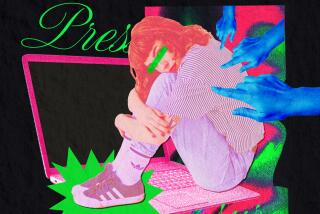Latinos reshaping nation’s religious terrain, study says
- Share via
The growing numbers of Latinos in the United States, and that population’s embrace of charismatic styles of worship, are reshaping the Roman Catholic Church and the nation’s religious landscape, according to a major study of Latinos and faith released Wednesday.
The study, by the Pew Hispanic Center and the Pew Forum on Religion & Public Life, found that a majority of Latino Catholics practiced a distinctive, charismatic form of Catholicism, one that might include speaking in tongues, prophesying and other practices considered more typical of Pentecostal churches. Those traditions are much less widespread among non-Latino Catholics, who also are less likely to identify themselves as charismatics or Pentecostals, the researchers found.
The study also showed that Latinos tend to gather in churches that have at least some Latino clergy, offer Spanish-language services and serve predominantly Latino congregations. These “ethnic congregations” are emerging across the country and draw in both immigrant and U.S.-born Latinos.
“Latinos are finding each other and worshipping together,” Roberto Suro, director of the Pew Hispanic Center, said in a conference call with reporters. “Religion appears to be one area where ethnic identity matters a lot.”
The analysis, “Changing Faiths: Latinos and the Transformation of American Religion,” is based on several telephone surveys, with the main one conducted between August and October. More than 4,600 adult Latinos participated in what the researchers called one of the largest examinations to date of Latinos and faith. The margin of error was plus or minus 2.5 percentage points.
Overall, the study found, about 68% of Latinos identify themselves as Roman Catholic, 15% describe themselves as evangelical or born-again, 5% say they are mainline Protestants, 3% belong to other Christian denominations and about 8% say they are secular. The remainder declined to answer.
About a third of all U.S. Catholics are Latinos, with that percentage considered certain to rise, alongside the growing Latino population. And about 54% of Latino Catholics surveyed identified themselves as charismatics or Pentecostals, compared to about 12% of non-Latino Catholics, the study showed.
Both charismatic and Pentecostal Christians, often grouped together under the term “renewalist Christianity,” place special emphasis on an intense, personal experience of the divine and believe that the Holy Spirit is manifested through supernatural phenomena, such as miraculous healing and prophesy.
The researchers said they used “Pentecostal” to refer to survey participants who belonged to specific Pentecostal denominations. They used “charismatic” to describe Christians, including Catholics, who did not belong to such denominations but described themselves as being charismatic or Pentecostal in their beliefs.
Luis E. Lugo, director of the Pew Forum on Religion & Public Life, said this style of Christianity attracted Catholics who may not feel a strong connection to God in the traditional Mass.
“This is introducing a new way to worship, a new way of being in church,” Lugo said in the conference call. “This extends not merely to the expressive -- what I call bringing the fiesta spirit into the Catholic Church -- but to speaking in tongues and prophesying.”
The survey also found that charismatic Latino Catholics were more likely than others to go to confession, sing in the choir and otherwise participate in activities at their church.
“They remain very Catholic,” Suro said.
More to Read
Sign up for Essential California
The most important California stories and recommendations in your inbox every morning.
You may occasionally receive promotional content from the Los Angeles Times.













